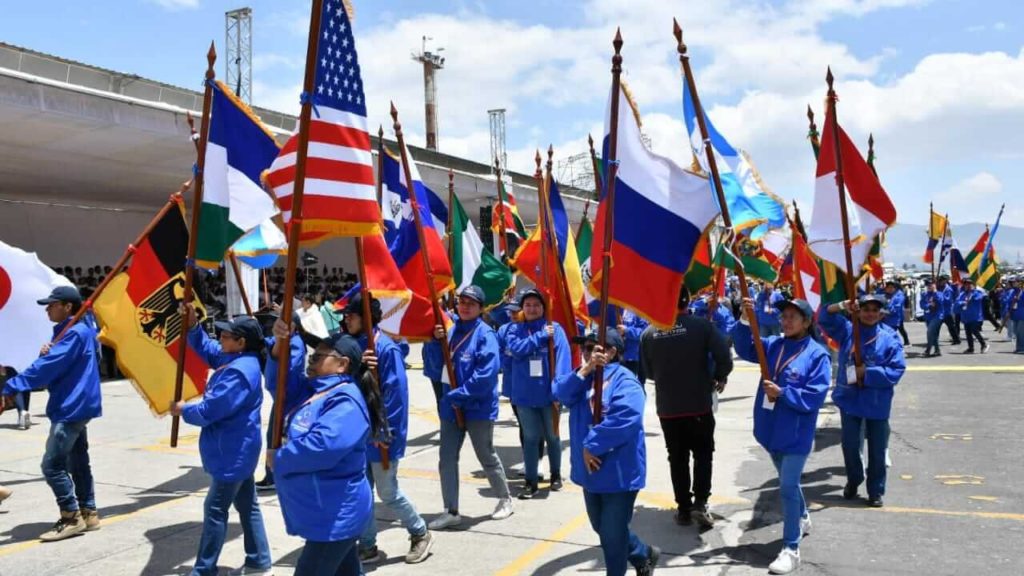Visibly affected and on the verge of tears, Leyden Rovelo spoke about the suffering of tens of thousands of recently arrived immigrant children in the United States during her talk Sept. 9 at the 2024 International Eucharistic Congress in Quito, Ecuador.
Rovelo referenced official reports that indicate that federal agencies such as U.S. Immigration and Customs Enforcement and the U.S. Department of Health and Human Services have failed to account for between 30,000 and 85,000 of these minors.
“They don’t know where our children are,” she said.
The Catholic Church and the migration drama
“The Catholic Church unequivocally recognizes the legitimate authority of sovereign nations to regulate their borders and manage migratory flows,” she said.
However, this position of the Church “does not constitute an endorsement of draconian measures or inhumane practices,” said Rovelo, director of Hispanic Ministry in the Diocese of Kansas City-St. Joseph, Missouri.
“Rather, it underlines the imperative to defend human dignity throughout the process of [immigration] control,” said Rovelo, who is also a member of the Hispanic Advisory Group of the United States Conference of Catholic Bishops’ (USCCB) Department of Justice, Peace, and Human Development.
She also referenced a message from the USCCB in 1983 in which the bishops affirmed “that the Hispanic-Latino presence in the American Church is a blessing from God for the Church and for the entire country.”
Rovelo continued her presentation by pointing out that since 1565, when the first Mass was celebrated in St. Augustine, Florida, “we have witnessed how Hispanic immigrants have revitalized parish life throughout the country, many of them in parishes whose population was aging,” although she noted that this “has not been without difficulties or wounds.”
Regarding the tragedies experienced by young Latin American migrants, Rovelo shared the story of a woman she had to assist who told her that her 5-year-old daughter died during the trip to the United States and she doesn’t even remember in which country she had to bury her.
“This delicate balance between national sovereignty and human rights is the basis and approach of the Catholic Church in the face of the dilemma of migration,” she emphasized.
The mystery of God in a time of migration
Rovelo elaborated on the fact that migrants are bearers of the Gospel and of the image of God, created in his image and likeness. Migrants are pilgrims on earth who seek — like everyone else — their final destiny in heaven, she said.
In addition, she asked people to see migrants for their human identity, “restoring our hearts and minds,” and not to see them through political labels, their legal status, or by making value judgments.
“We are all in flight. Migrants on the way home. Just as Christ is the bridge between us and the Father, we are also the bridge between migrants and a better place,” Rovelo said.
Finally, she highlighted the efforts of the American bishops to mitigate the suffering inherent in migration processes, calling on countries of origin to “address the root causes of migration,” while increasingly promoting and strengthening their support services for migrants and refugees.
“The Church has chosen to focus on the intention of ‘rendering to Caesar what is Caesar’s and rendering to God what is God’s’ by advocating sustainable development, democratic institutions, and policies that respect human rights and human dignity in the countries of origin,” she commented.
“The Church seeks to create an environment where people can thrive in their countries of origin, thereby reducing the compulsion to undertake dangerous journeys,” Rovelo added.

